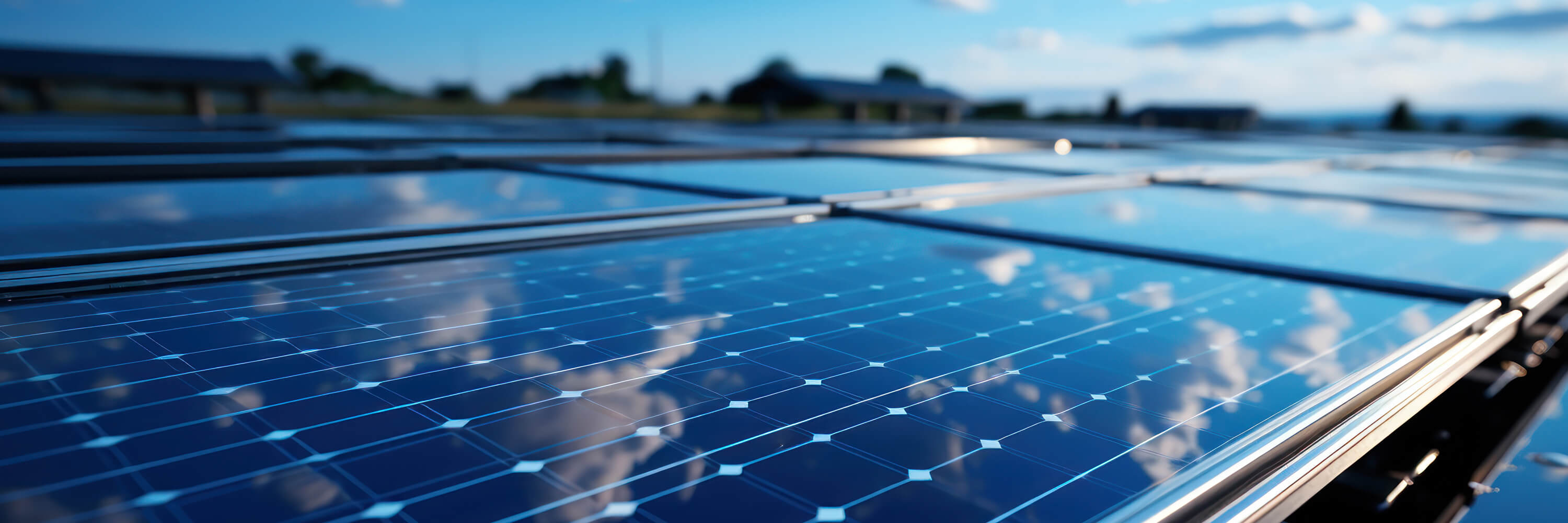An Energy Act amendment, the so-called ‘Lex RES II’, is to introduce community energy in the Czech Republic from July 2024. What will this change entail? The possibility of sharing electricity, for example, with family, neighbours or even within the municipality that can send electricity to schools or other municipal buildings. How to do it practically?
A key energy issue – electricity sharing – is due to come into force on 1 July 2024, as a major step towards decentralisation and energy self-sufficiency. However, it cannot be ruled out that electricity sharing will eventually be actually possible later in the summer. The reason is the need for further steps following the amendment (e.g. approval of the Data Centre Procedure Rules by the Energy Regulatory Office), which are necessary for the smooth start of electricity sharing.
What is electricity sharing?
The principle of electricity sharing is simple. Any entity that produces electricity at its own electricity generating plant (e.g. a rooftop photovoltaic power plant) has the option to share it with other offtake points, whether it is an individual, an entrepreneur, or a legal entity. You can thus share the electricity generated with yourself, within the community or with third parties (e.g. you can send electricity to your other property, share it with your extended family, with neighbours, within a multi-branch company, etc.).
Thanks to Lex RES II, it will be possible to share the electricity generated from one’s own electricity generating plants with others
If you generate electricity, you have the choice of who you share your electricity with and under what conditions, whether you share it for free or for a fee. The whole sharing process is to be administratively easy; the advantage is to remove the administrative burden on both the supplier and the customer.
Electricity can be shared from small electricity generating plants on the roof of a family house, but also from large electricity generating plants on the roof of industrial halls or ground installations. However, with the difference that smaller electricity generating plants with an installed capacity of up to 50 kW, which will not generate electricity for business purposes, i.e. all PV power plants on the roof of an ordinary family house, are exempted from the obligation to obtain a licence to generate electricity.
When sharing electricity, you also have the right to use the distribution and transmission system, both as a producer and as a recipient. This allows you to share electricity remotely – for example, from your house to a cottage in another region. However, you will still be obliged to pay the regulated price for electricity distribution to ensure the transmission of this electricity.
Nevertheless, the Energy Regulatory Office is working on the concept of a new tariff system and new distribution tariffs, so we can only hope that this will actually happen and that the preferential distribution tariffs for shared electricity will be another significant and logical incentive to generate and share electricity.
How does it work?
Electricity sharing should be carried out in real time or in 15-minute intervals. Electricity can only be shared from the transfer points and to the offtake points with installed continuous metering, which can collect data on the electricity generated or consumed at 15-minute intervals. At the same time, the electricity generated must also be consumed at the offtake point during that interval. For the time being, it is not possible to generate electricity for storage (without using one’s own battery). So you cannot, for example, supply electricity to the grid in the morning and consume "your" electricity from the grid in the evening, or "store" the electricity you generate in the summer for the winter.
Anyone wishing to exercise the right to share electricity can already ask their distribution system operator to install continuous metering. The distribution system operator is obliged to ensure the installation within 3 months from the application submission date. In the case of offtake points without an electricity generating plant or offtake points with an electricity generating plant with an installed capacity of up to 50 kW, the installation and subsequent maintenance will be carried out at the expense of the distribution system operator.
In order to process the large amount of data that electricity sharing brings about and to make the whole system actually work, the Electricity Data Centre was established. It is the approval of the Data Centre Procedure Rules by the Energy Regulatory Office that is linked to the actual enabling of electricity sharing, notwithstanding the earlier entry into force of the Energy Act amendment.
If you want to share electricity, you also need to register with the Electricity Data Centre the assignment of your transfer points to a sharing group, including the registration of the assignment of the shared electricity allocation method, i.e. the method of distribution of the generated electricity among the customers within the group. Registration will be made by the Data Centre at no charge. However, it will only be possible to assign each transfer or offtake point to one sharing group, regardless of whether it is sharing outside a community or within a community.
Who can I share with?
With virtually anyone – the options for sharing electricity can be divided into four basic groups – sharing between your own transfer or offtake points (i.e., with yourself); sharing with a third party; sharing within a community; and sharing within a joint main building fuse (cable) box.
Sharing with yourself
As a producer, you can share electricity with your various transfer points, regardless of their location within the Czech Republic. So you can consume the electricity generated on the roof of your cottage in South Bohemia during the week in your Prague apartment. In total, the electricity from the electricity generating plant can be shared with up to 10 other transfer points. A maximum of 11 transfer points, including electricity generating plants, can be included in the sharing group. If you do not consume all the electricity, you can at the same time share the surplus with third parties.
Sharing with third parties
You can share the generated electricity with third parties – family, friends or anyone else, regardless of their location within the Czech Republic. In general, the conditions are similar to those for sharing electricity between your transfer/offtake points, except that you can claim a fee for the electricity supplied, which will be paid by the customer. The amount of the fee is not regulated and can be agreed with the customer, so it is up to you to agree on the price together, or if you want to share the electricity within the family for free.
Sharing within a community
It will also be possible to share electricity within designated communities – so-called ‘energy communities’ or ‘renewable energy communities’. Electricity can be shared within the community, again for free or for a fee. Again, it depends on how you agree. Typically, community sharing can look like, for example, the municipality generates electricity in a photovoltaic power plant located on unused land and then shares it for free among its other offtake points (schools, offices, etc.), or the municipality can also send electricity to the residents of the municipality for a certain fee.
Such communities formally operate as legal entities in the form of a society, cooperative or limited liability company. The scope of business is to be electricity generation, electricity sharing, and providing for the energy needs of the community members. The primary purpose of a community is not to make profits, but to provide for the energy needs of its members. The Act therefore limits the distribution of profits and other own resources among members to 33%; in the case of societies, the distribution of profits or other own resources is prohibited altogether.
Due to the gradual operationalisation and improvement of the Data Centre, the transitional provision of the Energy Act amendment stipulates that in the period until 30 June 2026, the sharing group among transfer points within a community may include no more than 1,000 transfer/offtake points or electricity generating plants, within the contiguous territory of the administrative districts of no more than three municipalities with extended competence or within the territory of the capital city of Prague. From 1 July 2026, there should be no territorial or quantitative restrictions on electricity sharing within a community.
Sharing within residential buildings
The last option for sharing electricity is within one joint main building fuse (cable) box. These are mainly situations where the electricity generated from the PV power plant placed on the roof of a residential building is supplied to the residents of that building, i.e. without using the distribution system. Electricity can thus be shared for a fee or for no fee.
Is it worth it?
Although the primary purpose of electricity sharing is not to generate profits for the electricity producer or to make electricity cheaper for the customer, the financial side of sharing cannot be overlooked. After all, it will ultimately be financial considerations that will drive most community energy participants to get involved. So the key question is – is it worth sharing electricity?
If you already have an electricity generating plant, sharing electricity surpluses is almost always beneficial. If you are just about to build an electricity generating plant, the amount of investment in your own plant and the amount of electricity you are able to share or consume outside the plant, thus reducing your electricity costs or selling the electricity to a third party and making a profit, determines whether it is beneficial or not.
The economic advantage of sharing electricity "with oneself" lies in the current market set-up, where it is usually not very profitable for small-scale producers to supply electricity to the grid. Prices for direct sales of electricity to the grid are usually minimal. When there is a surplus of energy (sunny days), producers often even pay for supply of electricity to the grid. In such a set-up, it is significantly more advantageous to consume the electricity generated on the roof of your weekend cottage during the week at your home or share it with a third party for a fee, rather than sell it to the grid as electricity producers do now.
If you generate more electricity than you are able to consume yourself, you can share the electricity with family, friends or third parties, either as an active customer or within a community. If the parties behave rationally, such sharing can be beneficial for both the producer and the customer. The producer and the customer agree on a price between them, which, based on market rules, should ideally be between the fee for supply to the grid and the market price of electricity from regular suppliers.









